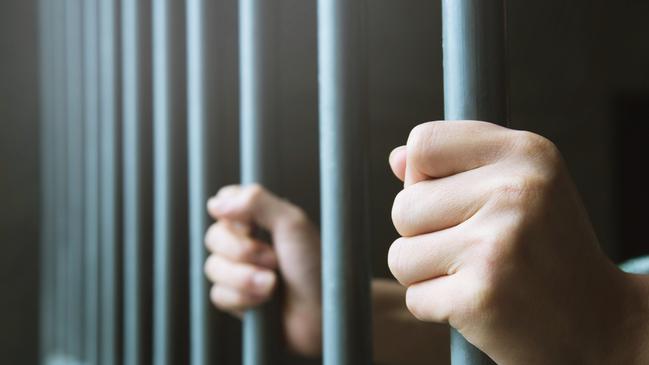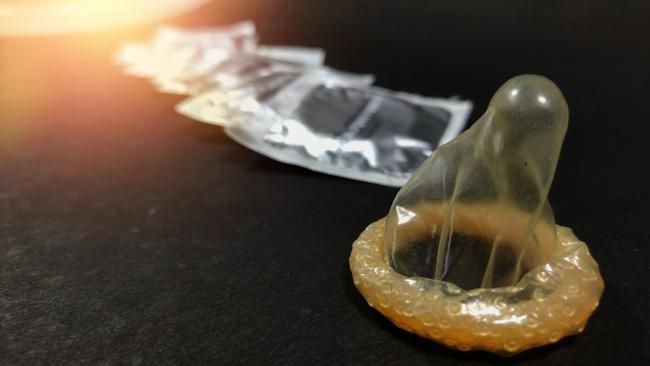Condoms may be offered to Queensland prisoners for the first time
Queensland prisoners could soon have access to a surprise product amid overcrowding in jails that is forcing inmates to share cells at night. VOTE IN OUR POLL

Police & Courts
Don't miss out on the headlines from Police & Courts. Followed categories will be added to My News.
Prisoners could be offered condoms in Queensland jails for the first time in a bid to stop the spread of sexually transmitted diseases as inmates continue to share cells in the state’s overcrowded jails.
The Courier-Mail can reveal plans for the condom rollout at the state’s jails and will align Queensland jails with others around Australia.
But the move has raised concerns from officers who say sexual activity between prisoners is banned.
It comes as the state’s jails are overpopulated with many prisoners “doubled up”, sharing cells at night.
A meeting was held on Wednesday to discuss the plan but it’s unclear if a trial date has been set.
The idea was previously floated by authorities but didn’t end up going ahead statewide. After a trial was discussed in 2021 a QCS spokesman said then-Commissioner Peter Martin had not approved a trial.
Health officials previously gave prison officers advice that using condoms is highly effective in preventing sexual HIV infection and that the World Health Organisation, United Nations, Public Health Association of Australia advocate they should be made freely available in prisons.
“Research has found that providing prisoners with condoms is not associated with an increase in consensual or non-consensual activity, or threats of sexual assault,” the background document said.
At the time of that proposal, officers were told prisoners would be able to discreetly get a condom in the medical centre.
It’s unclear how a trial would operate in Queensland in 2023.

Officers have raised concerns saying prisoners still shared needles which would continue the spread of diseases. They’ve also raised concerns about whether sex is consensual.
“Our main concern is sex between prisoners is still not allowed to happen inside a correctional centre, how is the department going to authorise sexual activity as an ‘approved activity’?” the officer said.
“Will they indemnify staff from prosecution for criminal negligence if we see it happening and do nothing?
“How do we know it is consensual?”
Concerns have also been raised that prisoners would be able to cheat the prison drug testing regime by storing clean urine in condoms.
Together Union assistant state secretary Michael Thomas said Queensland Health was “seeking to introduce condoms again for the health aspects”.
“We’re the only jurisdiction that doesn’t have them,” he said.
“At this point we have a series of concerns in relation to safety in terms of how they are implemented and what are the impacts of that.
“We’ve put a series of questions to the department. There is a working group that has been set up as part of that consultation to work through the concerns of the proposal.”
A Queensland Corrective Services spokeswoman said QCS was working closely with Queensland Health to reduce the risk of infectious diseases in correctional facilities, including “consideration of evidence-based preventive measures and interventions”.
“A working party has been established between QCS, Queensland Health and Together Queensland union to consider a trial of making condoms available in correctional facilities,” she said.
“No decision has been made at this time and all elements and related issues would be evaluated and considered before any formal implementation.
“The health of prisoners and preventing the spread of communicable diseases has a significant impact on the health of the wider community.”
A Queensland Health spokesman said condoms were known to be effective in reducing the risk of sexually transmitted infection.
“Queensland is the only jurisdiction in Australia where condoms are not available in prisons, which is why we are intending to conduct a trial,” he said.
“While it is a breach for prisoners to have sex, it is incumbent on a health authority to ensure those who have sex are doing so safely.
“The World Health Organization and other leading health agencies recommend condoms be made available in correctional centres.”
“Research shows that access to condoms does not lead to an increase or change in the frequency of sexual activity in correctional centres. It does, however, increase the likelihood that safe sex will be practised.”
The spokesman said the trial was being considered because it would be an effective public health measure and was also a human right.
“The trial would be evaluated after three months,” the spokesman said.
“In addition to protecting inmates, the implementation of this policy would also help reduce the STI risk to the wider community, given that around 1,000 people are released from prisons in Queensland every month.
“While STIs can still spread through other means, any measure that helps curb their spread is worthwhile.”


